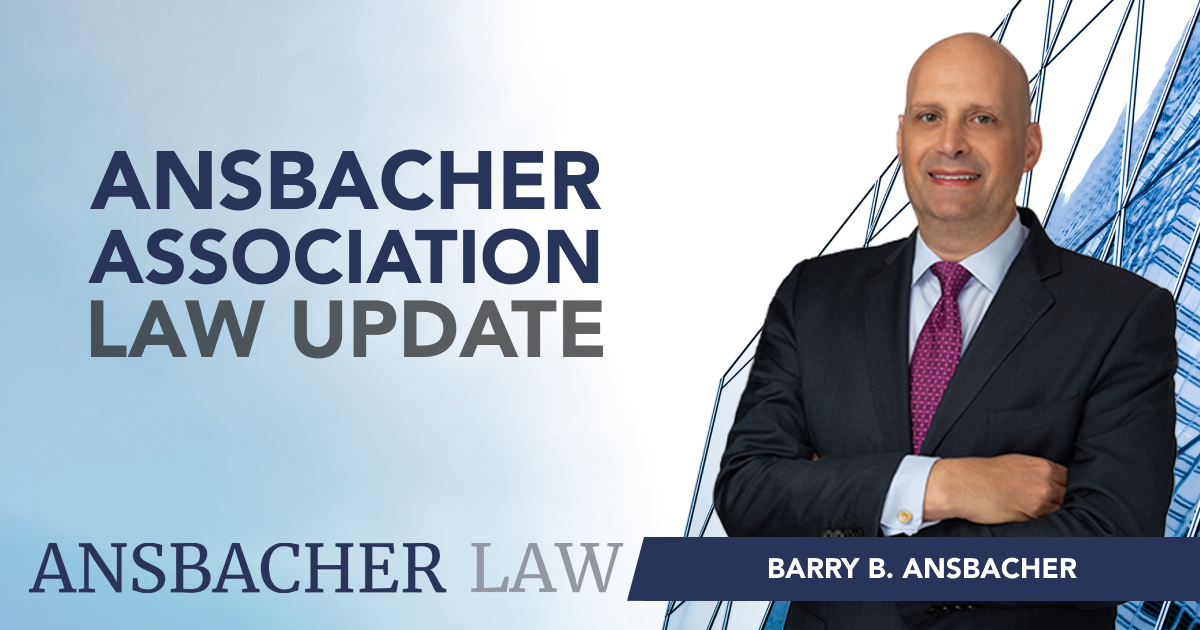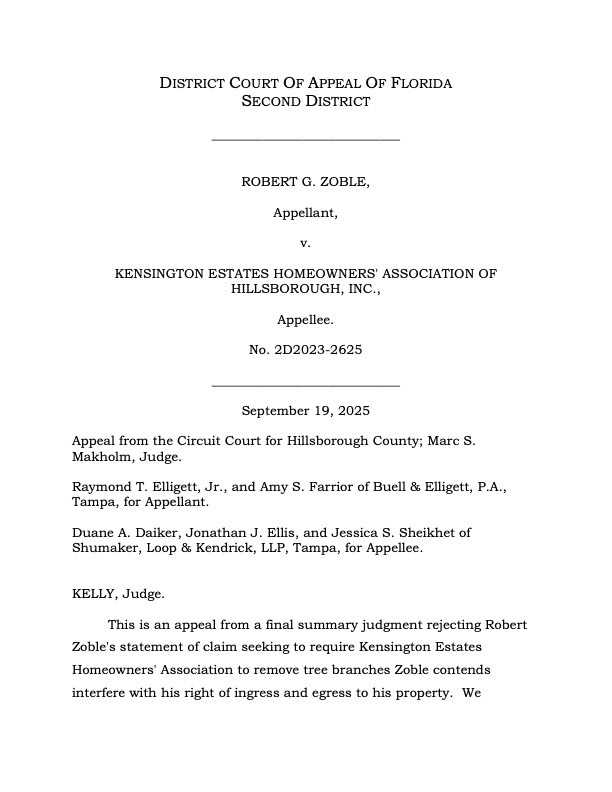
In a lawsuit between a Hillsborough County homeowners’ association and a homeowner the Trial Court granted summary judgment in favor of the HOA. In particular, the Trial Court dismissed the homeowner’s claim that the HOA failed to maintain its common areas interfering with his access to his home. The homeowner asserted that the inadequate trimming of trees violated his easement rights.
The Trial Court found that the HOA had absolute discretion under the business judgment rule on how to maintain its common areas. However, the Appellate Court reversed the summary judgment and sent the case back for a trial on the merits. Of note, the Appellate Court found that the homeowner’s easement rights if violated could not be overcome by the business judgment rule. Further the Appellate Court noted that business judgment must be reasonably exercised and the HOA cannot acts cannot be “arbitrary, capricious, or made in bad faith.”
The takeaway is that HOAs (and condo associations) must adopt and follow defensible management plans for their common areas, and document, preferably in board minutes, its deliberations and decisions. Where the obligations of the governing documents cannot be reasonably fulfilled by the HOA, the board should consider amendments to conform the association’s obligations to the community’s actual practices. Although DBPR arbitrators may still defer to the board’s decisions under an expansive interpretation of the “business judgment rule” the courts will not, and associations who rely exclusively on this rule do so at their peril.
To Read The Decision, click on the picture below:
By Barry B. Ansbacher
Barry B. Ansbacher is the founder and managing shareholder of Ansbacher Law. He is the only attorney in Florida board certified in Real Estate, Construction, and Condominium & Planned Development Law. With more than thirty years of experience, Barry represents community associations, property owners, and businesses across Florida. A Jacksonville native, he is recognized statewide as a trusted authority on real estate and association law. To learn more about Mr. Ansbacher, visit his biography by clicking here.

